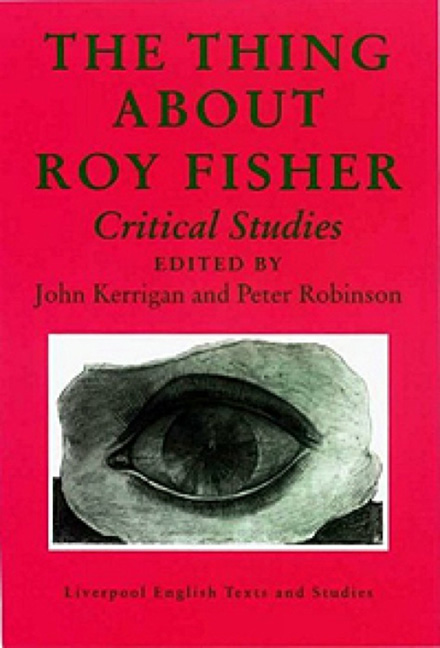Book contents
- Frontmatter
- Contents
- Notes on Contributors
- Acknowledgements
- Abbreviations
- Introduction
- 1 Roy Fisher on Location
- 2 ‘Menacing Works in my Isolation’: Early Pieces
- 3 TheWork of a Left-Handed Man
- 4 Osmotic Investigations and Mutant Poems: An Americanist Poetic
- 5 ‘Making Forms with Remarks’: The Prose
- 6 Cutting-Edge Poetics: Roy Fisher's ‘Language Book’
- 7 A Burning Monochrome: Fisher's Block
- 8 ‘The Secret Laugh of the World’
- 9 ‘Exhibiting Unpreparedness’: Self, World, and Poetry
- 10 ‘Coming into their Own’: Roy Fisher and John Cowper Powys
- 11 A Furnace and the Life of the Dead
- 12 Last Things
- Roy Fisher: A Bibliography
- Indexes
10 - ‘Coming into their Own’: Roy Fisher and John Cowper Powys
- Frontmatter
- Contents
- Notes on Contributors
- Acknowledgements
- Abbreviations
- Introduction
- 1 Roy Fisher on Location
- 2 ‘Menacing Works in my Isolation’: Early Pieces
- 3 TheWork of a Left-Handed Man
- 4 Osmotic Investigations and Mutant Poems: An Americanist Poetic
- 5 ‘Making Forms with Remarks’: The Prose
- 6 Cutting-Edge Poetics: Roy Fisher's ‘Language Book’
- 7 A Burning Monochrome: Fisher's Block
- 8 ‘The Secret Laugh of the World’
- 9 ‘Exhibiting Unpreparedness’: Self, World, and Poetry
- 10 ‘Coming into their Own’: Roy Fisher and John Cowper Powys
- 11 A Furnace and the Life of the Dead
- 12 Last Things
- Roy Fisher: A Bibliography
- Indexes
Summary
Roy Fisher dedicated A Furnace:
To the memory of John Cowper Powys
1872—1963
It is an unexpected choice. Powys's longwinded and agitated novels seem quite foreign to the compactness and downbeat understatement that often characterize Fisher's work. Where Fisher is reticent and oblique, Powys is insistent or oratorical. Fisher follows through on his dedication, however, by citing Powys as a source for key-ideas in the poem:
I am indebted to his [Powys's]writings for such understanding as I have of the idea that themaking of all kinds of identities is a primary impulse which the cosmos itself has; and that those identities and that impulse can be acknowledged only by some form or other of poetic imagination.
This is a good summary of what Powys believes. In his novels, animals and plants, even stones and minerals, are not only all alive, but each kind of living thing possesses its own quality of consciousness and seeks to become as completely itself as possible. Moreover, in an age obsessed with a scientific account of truth, something akin to ‘poetic imagination’ is needed in order to recognize the real nature of the universe. As I hope to show, this aspect of Powys's work and belief-system underlies and informs Fisher's work, A Furnace in particular.
Powys's conviction that the universe is animated in all its parts drives his lifelong and passionate hostility to vivisection. It is also expressed with extraordinary directness in everything he writes:
Silent and alone too the now-darkened conservatory listened to the placid sub-human breathings of heliotrope and lemon verbena, the latter with a faint catch in its drowsy susurration, where one of its twigs was bleeding a little from the impact of the fingers of the indignant Mr Didlington.
This is from near the beginning of A Glastonbury Romance (1933) in Which Mr Didlington figures as a minor villain.His officious cruelty makes an ‘impact’ greater than he realizes. His non-recognition of his own impact is the source of his cruelty, in fact—a form of cruelty analogous in Powys's mind to the evil of vivisection. Because Didlington treats plants as if they were just material objects, he prunes them without a second thought and leaves them ‘bleeding’.
- Type
- Chapter
- Information
- The Thing About Roy FisherCritical Studies, pp. 231 - 256Publisher: Liverpool University PressPrint publication year: 2000



